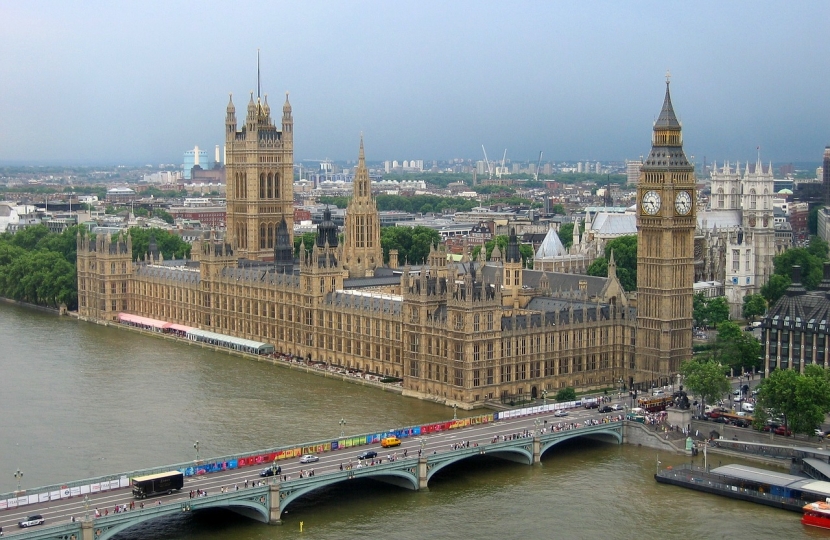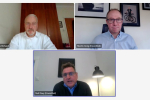
Please see below for Richard's comments on the role of Parliament during the coronavirus pandemic:
"The experience of COVID has already made dramatic changes to the conduct of UK politics. The process of democracy has changed with Members of Parliament remotely “zooming” in rather than sitting in the Chamber. The centre of democratic decision making which used to pulsate with lobbying and verbal combat has become, almost literally, a hollowed-out echo chamber. The effectiveness of this, still new, Parliament dwindles by the day. The Speaker must act with urgency.
The vigour of Parliament has been further sapped by an Opposition that has too often been missing in action. The Opposition has failed to develop a coherent alternative to the Government’s approach and has conducted itself with an approach that could best be summed up as “whine and offer nothing new”.
In March, Parliament actively voted or, as in my case acquiesced, to give Government wide ranging executive powers to tackle COVID by passing the 2020 Coronavirus Act without a vote.
Since then the executive branch has trod a solitary path taking all decisions – frequently with information that is either uncertain or unavailable. These decisions have been informed by the tireless service of our Chief Medical Officer, the Chief Scientific Officer and all the other medical and scientific professionals who have been drafted to serve their nation. They have acted in all our best interests and we owe them a great debt of gratitude.
The media, rather than Parliament, has been the forum in which these decisions have then been debated and held to scrutiny: media which, in the round, has in my view not served the country well; with an over-emphasis on sensationalism and a lack of perspective on both the illness and the time required for chosen policies to be implemented.
Throughout, Parliament has at best been a mute bystander. Soon, Parliament will have the opportunity to review how those powers have been used. Parliament must exert its authority and re-assert its role in legitimizing decisions and providing executive oversight. Crucially, Parliament should impel the Government toward a reassertion of our civil liberties and a more proportionate response to this era of Covid.
An overarching principle that defines this period is the primacy given to public health risk mitigation far beyond anything seen before. That the framing of policies giving form to that principle are now heavily influenced by medical expertise brings nuances of ethics and experience that are novel to the centrality of government. I call this period the “Dococracy” and its characteristics help explain where we are and where we might be heading.
In the “Dococracy” an unusual public deference to executive decisions has returned. Those with medical qualifications hold centre stage and, rightly, we instinctively hold doctors in high regard. We are used to following our GP’s advice. As most Members of Parliament lack even a cursory understanding of epidemiology, an unusual level of deference has become the default response to executive decisions.
If there is a public disagreement between a doctor or a politician, who are you instinctively going to trust? It would be no contest. This public disparity in trust provides additional leverage in contested private discussions. It would be a “courageous” move by a Minister to challenge a medical advisor in public. Medical professionals would, however, likely be amongst the first to say that there are few unambiguous truths in the efforts to control the virus just contestable theories: “the” science is just the science today not necessarily, without potential challenge, the science tomorrow.
An expectation of truth and a high level of deference can inhibit open enquiry and challenge in the public space enabling mistakes to go unreported and to compound. The Government’s overall strategy on Covid has never been fully reviewed by Parliament which is a glaring oversight. Parliamentarians should limit this risk by initiating now its own process of review of each of the major Covid decisions made – a role ideally suited to the Liaison Committee.
Political decision making is frequently a matter of trade-offs, of competing interests for taxpayers’ money, of short-term wins vs long-term strategic goals. These trade-offs are often guided by core principles which at a fundamental level are amongst the strongest connections between political parties and voters. The origins of the Labour and Conservative parties, the experience of their respective times in government and the social reinforcement of values through dinner table conversations and debates at the pub help solidify a view of the bedrock from which decisions will be made by governments between elections.
With decision making now being so heavily influenced by medical expertise, that bedrock is proving to be a less reliable indicator. The traditional basis of making trade-offs is being warped by the bedrock ethics of the medical professionals of which “to do no harm” has a special significance. “To do no harm” has not before had such centrality to government decision making. In the past, public policy was to mitigate, not to eliminate, health risks. Policies from speed limits to NHS drug approvals were, in part, assessed on Quality of Life Years – an explicit trade-off with financial consideration. The centre of government in this era of “Dococracy” has explicitly abandoned such trade-offs, stating that it will “do whatever it takes”, driving public debt up to historically high peace time levels and boldly announcing future commitments to “moonshot” vaccine discovery that could add £100bn more.
Parliament should assert its authority over the purse strings of Government by requiring the Treasury to issue impact assessments on each major decision during the Covid era that has affected our economy and our public finances. First on that list should be the decision to force a national lockdown; the full suite of economic support measures; and a full appraisal of the costs and benefits of the medical response to Covid including the implications for other illnesses and treatments.
Our freedoms have also been subordinated to this unusual primacy of medical ethics. We have allowed ourselves to be placed under house arrest, both collectively during the lockdown and individually during quarantine. Vast sectors of our economy have been closed by executive order and, once closed, affected businesses have found it extremely difficult to persuade those in authority to permit them to re-open. There is increasing reliance on curfews and local lockdowns. Tracing systems and identification mechanisms, justified under medical expedience, empower the state in ways that would provoke protest from civil libertarians and indeed the general public in any other period of national life.
Personal responsibility and common sense have been discarded or worse, attacked, as an effective basis for ordering society which seems odd when other countries, most notably Sweden, have placed continuing faith on those same norms of a free society.
The voice of Parliament on the core measures that continue to limit our civil liberties must be explicitly tested – and on a free vote. Let us have formal votes on the basket of Covid measures that restrict our freedoms such as the rule of six; on the Covid measures that determine enforcement such as Covid marshals and £10,000 fine; on the economic support packages and their costs to taxpayers; and on whether the government has the right to order a second national lockdown.
It is to these issues that Parliament should now attend. Parliamentarians have provided the Executive branch with too much leeway. Unlike those boarded up businesses asking the government to permit them to restart their work Parliament must itself determine the path for the return of emergency powers and the restoration of our liberties."

